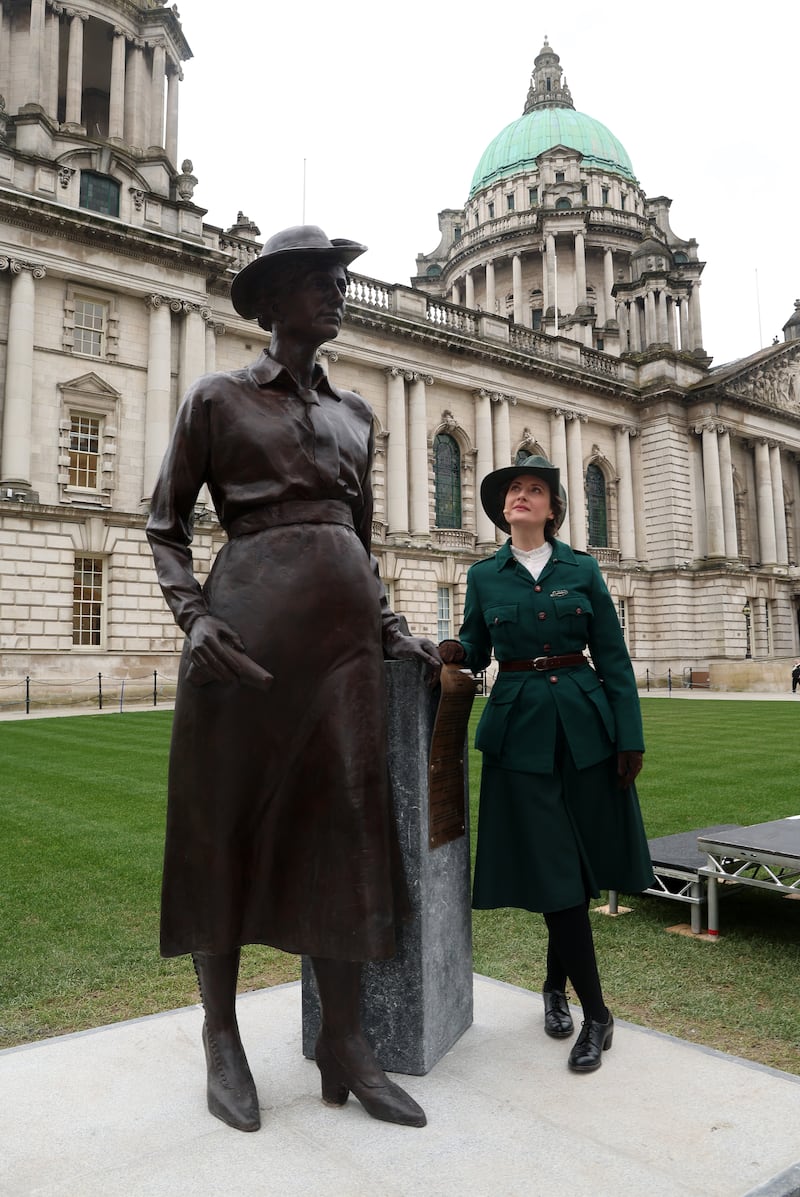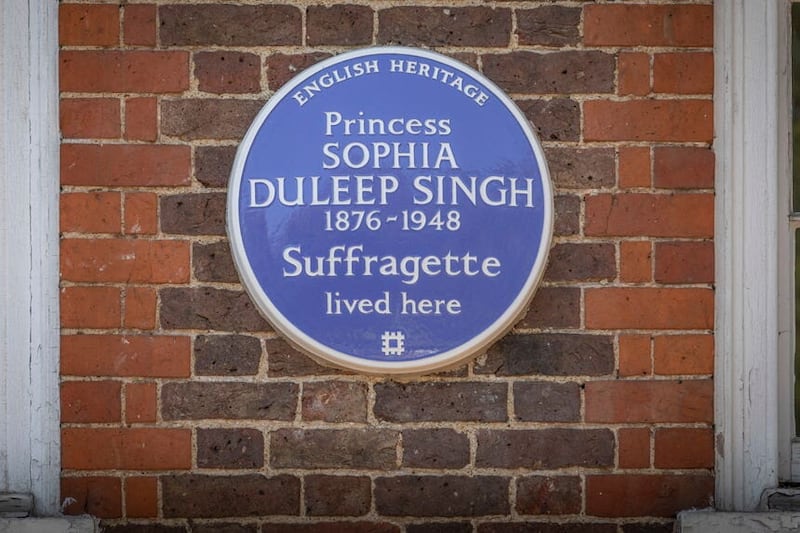“The doctor took the loose end of the sheet and began to bind me: he wrapped it round and round me, my arms tight to my sides, wrapped it up to my throat so that I could not move...”
If you’re like me, then you won’t have heard of Lillian Metge, Dorothy Evans or Maud Wickham. All ladies unlikely to break windows in their prison cells and shout out, ‘No surrender’; ladies unlikely to endure force feeding - but they did.
“...Suddenly the dark broke into a blotch of light, as he trailed the electric bulb up and down and across my face, stopping to examine my throat to make sure I was fully capable of swallowing. He sprayed both nostrils with a mixture of cocaine and disinfectant.”
- John Gray: In our own era of a grotesque gap between rich and poor Mary Ann and Winifred should still lend inspirationOpens in new window
- North Street Arcade neglect highlights Tribeca failure and memories of a forgotten Belfast - Anne HailesOpens in new window
- ‘My heart went out to Kate, I know what she has gone through’ - Anne HailesOpens in new window
- Have you ever done any modelling? - Anne HailesOpens in new window
It must have been a terrifying time. What was so important that they, and many other women, took to breaking the law to make their point? Safe working conditions, a decent wage, protecting their children - equality with men, votes for women.
Lillian reports seeing the medical staff hold the arms of a young girl on a plank bed.
“One gripped her head and another her feet, while her mouth was forced open with a steel gag, fastening her jaw wide apart. Then a wide tube, four feet in length, was pushed down her throat making her body and legs double up. The horror of it was more than I can describe.”
Disturbing Lunchtime
It was a horror shared by the audience in the Linen Hall Library in Belfast last week as actors brought us into the world of the Irish suffrage movement under the title Shrieking Sisters, a derogatory term in the early 1890s. There were those who sipped tea and politely called for the vote for women and those who went into action, militant women determined to succeed at any cost - and that cost was great.

In a scrupulously researched script, Carol Moore and Maggie Cronin have succeeded in bringing those days to life; together with Laura Hughes and Libby Smyth they played out the characters between them with Carol taking the main reporting role of Lillian Metge.
“He had inserted the red tubing, with the funnel at the end, through my nose into the passages of the throat. It is utterly impossible to describe the anguish of it... There arose the hideous thought of being gripped in the tentacles of some monster devil fish in the depths of a tropic sea, as the liquid slowly sensed its way along innumerable endless passages.”
Determined Women
They grouped together, laid their plans, assembled their weapons and set to work burning letter boxes, setting fire to unionist property, halls, churches, a race stand, Bangor station and the teahouse at Bellevue Gardens. Lillian added that golf clubs were a speciality. They carried firelighters in pretty cake boxes from the Carlton Cake Shop in Donegall Place.
We are no longer seen as ornaments rather as women with a say in matters, decision-makers in so many aspects of life. And yet, there is still terrible domestic violence, the glass ceiling, young women being taken advantage of and shocking abuse of women in many parts of the world
However, their most spectacular venture was trying to blow up Lisburn Cathedral by placing dynamite at the east end. Lighting the fuse resulted in a hole in the wall and the smashing of windows.
Winifred Carney got her recognition recently with a statue at Belfast City Hall but most others have gone uncelebrated until Carol had the idea of making their story into a performed reading which they have taken to schools and theatres up and down the country.

These women are modern day suffragettes making their protest with the pen, you can just see their reflection in the court rooms where Lillian and her comrades stood up to magistrates showing extreme bravery both verbal and physical, “with the force of a tigress”.
“You can kill us but you cannot kill our spirit;” and thank goodness otherwise you and I, dear female reader, wouldn’t be enjoying free speech and a certain equality - although we are still fighting.
We are no longer seen as ornaments rather as women with a say in matters, decision-makers in so many aspects of life. And yet, there is still terrible domestic violence, the glass ceiling, young women being taken advantage of and shocking abuse of women in many parts of the world. It’s up to the rest of us to remember our feminist predecessors and how they fought for a vote and a voice.
With the outbreak of the Great War in 1914 the king “granted freedom for all persons undergoing terms of imprisonment connected with the suffrage agitation”.
In 1922 “women in the Irish Free State gained equal suffrage rights with men and can vote at 21. In 1928 women in Northern Ireland and the rest of the UK win the right to vote at age 21″.
But they never forgot the struggle and neither should we. Be proud to say, “I am a woman who counts - I vote.”










